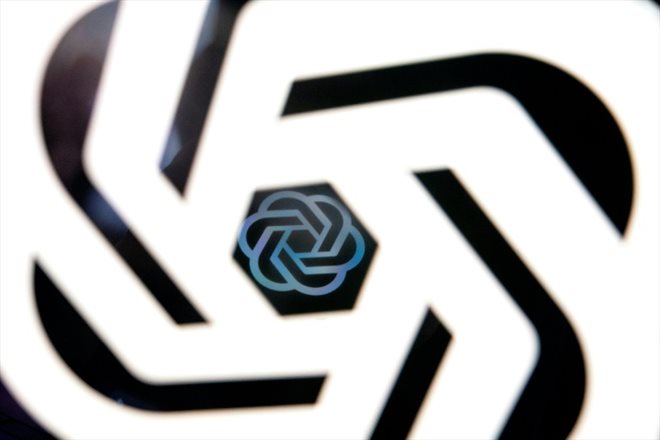The launch of ChatGPT at the end of November by the Californian start-up OpenAI launched a race for generative artificial intelligence, capable of producing increasingly sophisticated content (AFP/Archives/Lionel BONAVENTURE)
The rapid deployment of an increasingly “general” artificial intelligence (AI), endowed with human cognitive capacities and therefore likely to disrupt many professions, is considered inevitable in Silicon Valley and arouses a fascination that overwhelms voice calling to slow down the pace.
“If you take the invention of electricity, computers, the internet and mobiles together, you’re still short of what we’re going to see,” said Siqi Chen, a San Francisco-based entrepreneur.
“All of these things were created by intelligence. But for the first time, we are able to create intelligence itself,” he continues. “It’s a double-edged sword, but if it goes well, it can solve all the problems (…), like global warming.”
Like many other tech players, Siqi Chen is convinced that he is witnessing a historic paradigm shift.
Especially since Tuesday’s presentation by OpenAI of GPT-4, a new, even more powerful version of the natural language model that operates ChatGPT, the generative AI interface used by millions of people for a few months to write essays, poems or even lines of computer code.
ChatGPT will be able to process not only text, but also images, and produce more complex content, such as legal complaints or video games.
GPT-4 thus represents a step forward in the direction of so-called “general” artificial intelligence, that of programs “smarter than humans in general”, according to Sam Altman, the boss of the Californian start-up.
– “Amazing” –
On Thursday, Microsoft, the main investor in OpenAI, promised that “we could soon no longer be without” generative AI-based assistants, capable of interacting with humans in their languages and carrying out all kinds of tasks. , from the summary of a meeting to the creation of a website or an advertising campaign.
These tools will free humans “from the drudgery that stifles creativity” so they can reconnect with “the soul of their work”, said Jared Spataro, an executive with the IT group.
“I used GPT-4 to code 5 micro features for a new product. A (very good) developer wanted $6,000 and two weeks. GPT-4 did it in 3 hours for $0.11. Mind-boggling”, tweeted Joe Perkins, a British entrepreneur.

OpenAI wants to build so-called “general purpose” artificial intelligence, i.e. AI systems with human cognitive abilities (AFP/Stefani Reynolds)
Siqi Chen acknowledges that new technology may one day replace him. But he is counting on the ability of humans to adapt, with solutions like universal income.
Beyond the threat to the intellectual and artistic professions, general AI is giving rise to insurmountable debates in society.
What will remain authentic, when the slightest photo on Instagram or the slightest opinion on a restaurant will have been produced with or by an AI? What will become of learning, when it will suffice to formulate requests to machines? Who should make the decisions to define the algorithms?
– “Existential” –
“General AI is coming faster than we are able to digest it,” remarks Sharon Zhou, founder of a generative AI start-up.
“This will pose existential questions to humanity. If it is more powerful and intelligent than us, are we exploiting it? Or is it exploiting us?” Asks the former researcher of the Stanford University.
OpenAI claims to want to build general AI gradually, with the aim of benefiting all of humanity. It relies on the widespread use of its models to detect and rectify problems.
But the company itself seems overwhelmed by events.
Greg Brockman, one of the co-founders, admitted in an interview with The Information that ChatGPT was not as values-neutral as they would have liked.
Ilya Sutskever, the scientific director, would like “there to be a way to slow down the rate of release of these models with unprecedented capabilities”, according to an interview with the MIT Technology Review.
And the start-up, whose name means “open AI”, is criticized for its lack of transparency. The release of GPT-4 marks “its transformation from a non-profit research laboratory into a capitalist enterprise”, judge Will Douglas Heaven, expert of this scientific journal.
But despite the real and imagined criticisms, concerns and risks, the industry remains convinced that mainstream AI is coming, inexorably.
Because the race between companies is on, explains Sharon Zhou, but also between countries, especially the United States and China.
“The power is in the hands of those who know how to build all this,” she says. “And we can’t stop, because we can’t afford to lose.”
© 2023 AFP
Did you like this article ? Share it with your friends with the buttons below.




